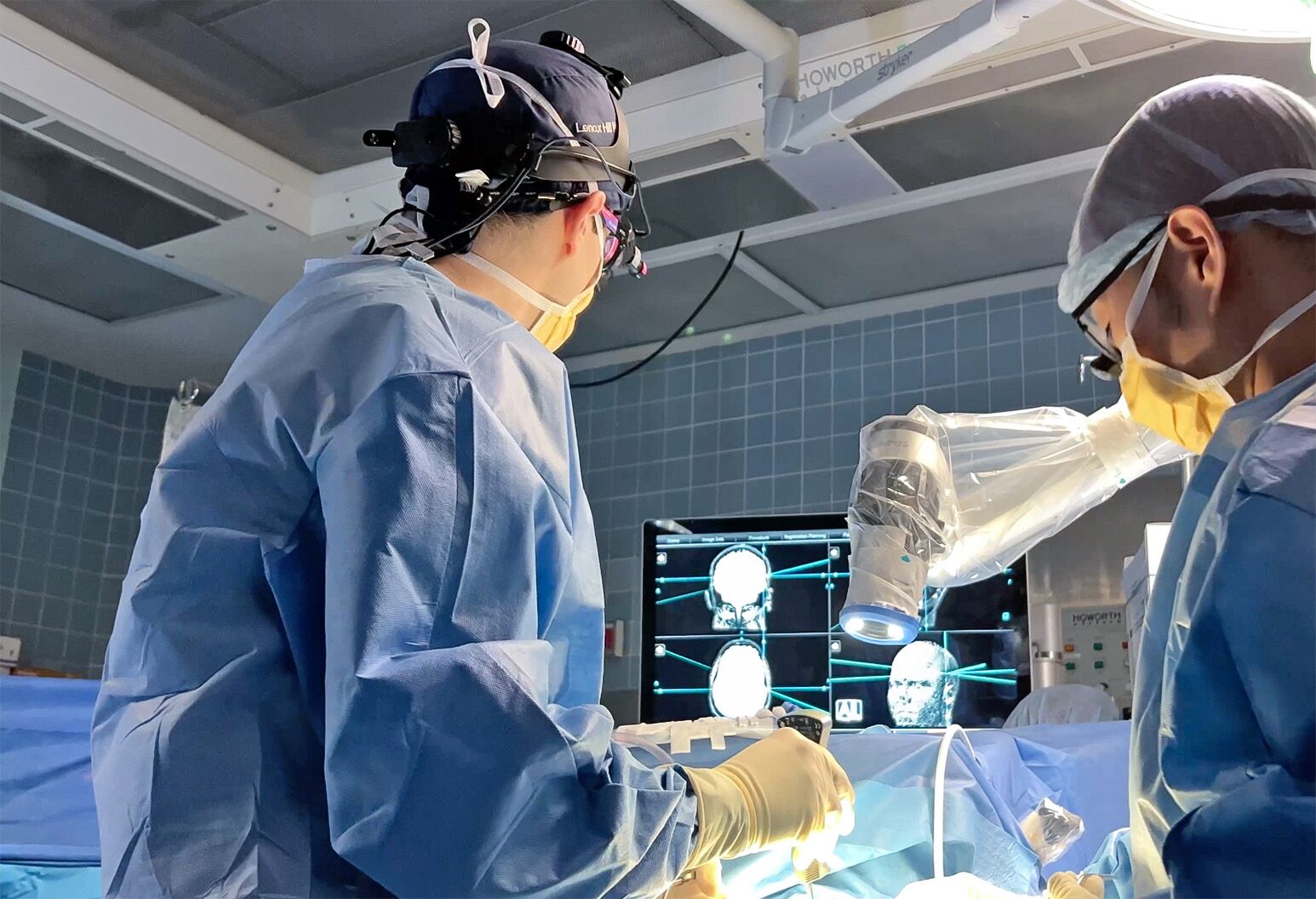Our representatives are available to schedule your appointment Monday through Friday from 9am to 5pm.
For a Northwell ambulance, call
(833) 259-2367.

Lenox Hill Hospital, a member of Northwell Health, was the first in Manhattan to use state-of-the-art brain mapping neurotechnology by Omniscient called Quicktome to perform neurosurgery more efficiently. Citing the device’s safety and benefits to the patient, Randy D’Amico, MD, the director of the Brain and Spine Metastasis Center at Lenox Hill Hospital, has made the technology standard in his practice since being the first to use it May 2022. Lenox Hill Hospital purchased the FDA-cleared platform that uses MRI scans to automatically map a patient’s unique brain network prior to life-changing surgery in May of 2023.
“Technological advancements are a treasured tool in the fight against some of the most challenging neurological illnesses,” said David Langer, MD, the chair of neurosurgery at Lenox Hill Hospital. “At Lenox Hill, we aim to stand at the tip of the spear of these technological advancements to ensure our patients are getting state-of-the-art care.”
This technology leverages “connectomics,” or the study of the brain's connections and functional networks to create templates of an individual’s cognitive and emotional regulation networks within the brain. Damage within these networks during surgery can cause a variety of new neurologic problems, ranging from the loss of mobility or speech to depression and dramatic changes in personality, severely impacting one’s quality of life. This brain mapping information is invaluable in the process of resecting malignant tumors, as surgeons typically remove healthy brain matter near the mass to minimize the chances of recurrence. Prior to advancements in connectomics mapping, neurosurgeons performed operations based on imaging platforms that showed anatomical landmarks without this valuable network information.
Dr. D’Amico recently performed this surgery on Samuel Clark, a 38-year-old patient that had a growth on the language portion of his brain. Prior to surgery, Quicktome’s machine learning algorithm created a patient-specific brain map that allowed Dr. D’Amico to tailor his surgical approach to Mr. Clark's individualized anatomy. Real-time imaging and electrical stimulation of the brain during the surgery which was performed awake also aided Dr. D’Amico in the removal of brain matter that would not affect Mr. Clark’s speech or cognition.
“While technological advances like this one make neurosurgery safer, what matters most are the benefits to our patients,” said Dr. D’Amico. “They can leave the operating room not only with their faculties intact, but with the same personality and characteristics their loved ones know them for.”
Lenox Hill Hospital's neurosurgery program is renowned for exceptional outcomes and world-class care. US News and World Report ranked it the 22nd best hospital for neurosurgery and neurology in 2022-2023. The hospital is also number 28 on Newsweek's World Best Specialized Hospitals list for neurosurgery in 2023. Eight of the team's neurosurgeons are recognized by Castle Connolly Top Doctors.
Our representatives are available to schedule your appointment Monday through Friday from 9am to 5pm.
For a Northwell ambulance, call
(833) 259-2367.